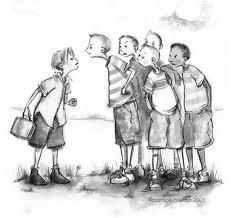I have often wondered what purpose blind faith serves above and beyond establishing a sense of purpose. The answer that most readily comes to mind, in this regard, is quite simply hope combined with a sense of belonging.
To that end, the majority of human beings at some point in their lives will ask, “Why am I here?” It is this very dilemma that instills a sense of lacking within humanity.
Similarly, human beings need to feel validated, regardless of their ethos. They must believe they have a purpose, and more importantly that their existence stands for something. One might say, they need to believe they belong and are needed.
Humanity, regardless of culture, has an instinctive need to believe they belong and as such are part of something that is bigger and stronger that is on their side, and in their corner; an omnipotent figure if you please, that will unconditionally love, support, and forgive them no matter what. Humankind must believe that they are not alone in this world, and that they are living for a reason; a reason that has its basis in hope.
For information regarding our services, please visit our website at www.nvamc.com, or call us at 1-888-992-6479.
Happy New Year!
North Valley Anger Management Consultants
To that end, the majority of human beings at some point in their lives will ask, “Why am I here?” It is this very dilemma that instills a sense of lacking within humanity.
Similarly, human beings need to feel validated, regardless of their ethos. They must believe they have a purpose, and more importantly that their existence stands for something. One might say, they need to believe they belong and are needed.
Humanity, regardless of culture, has an instinctive need to believe they belong and as such are part of something that is bigger and stronger that is on their side, and in their corner; an omnipotent figure if you please, that will unconditionally love, support, and forgive them no matter what. Humankind must believe that they are not alone in this world, and that they are living for a reason; a reason that has its basis in hope.
For information regarding our services, please visit our website at www.nvamc.com, or call us at 1-888-992-6479.
Happy New Year!
North Valley Anger Management Consultants












 peace and order in the self, the mandala
peace and order in the self, the mandala













